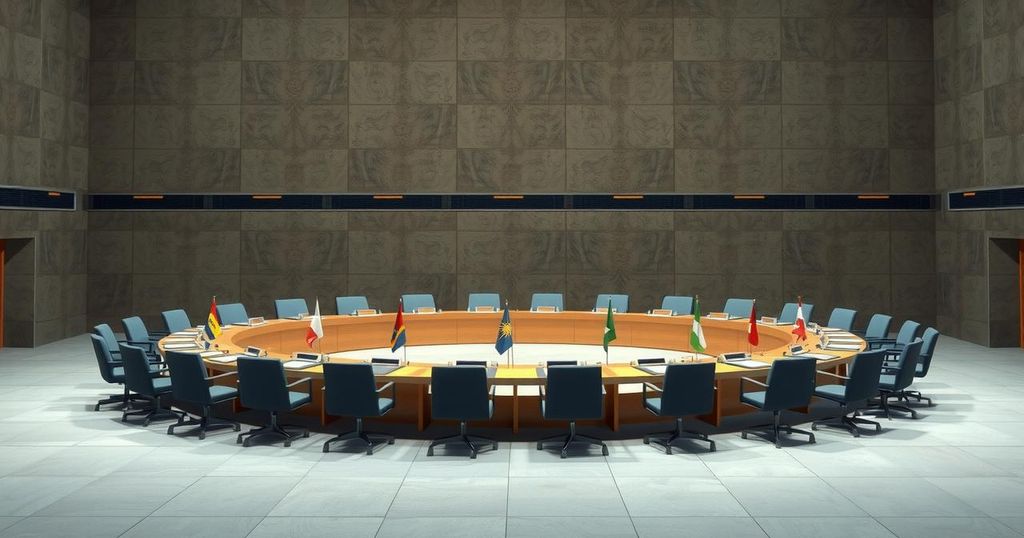Russia Seeks Guarantees Against Ukraine’s NATO Membership Amid Peace Talks

Russia is demanding an “ironclad” guarantee that Ukraine will not join NATO amid ongoing peace discussions. Deputy Foreign Minister Alexander Grushko emphasized this point, reiterating opposition to NATO troop deployments in Ukraine. The diplomatic talks involving U.S. and European leaders reflect heightened efforts toward conflict resolution, but future agreements hinge on Ukraine’s neutrality and foreign military limits.
Russian Deputy Foreign Minister Alexander Grushko has articulated that Russia seeks an “ironclad” assurance that Ukraine will not be allowed to join NATO. During an interview with the Russian newspaper Izvestia, he stated, “We will demand that ironclad security guarantees become part of this agreement,” emphasizing that these guarantees must include Ukraine’s neutral status and a commitment from NATO countries not to accept Ukraine into the alliance.
Grushko did not address a previously discussed 30-day cease-fire proposal, which Ukraine had accepted with U.S. negotiators in Saudi Arabia. President Vladimir Putin has asserted that any agreement must first satisfy several key conditions before moving forward.
U.S. special envoy to the Middle East, Steve Witkoff, mentioned that former President Trump is expected to have a phone conversation with Putin this week. Witkoff described a recent meeting in Moscow as “positive” and “solution-based”, indicating ongoing diplomatic efforts.
Reasserting Russia’s firm stance, Grushko expressed opposition to sending European troops into Ukraine, countering indications from Britain, France, and Australia regarding potential NATO peacekeeping forces. He remarked, “It does not matter under what label NATO contingents were to be deployed on Ukrainian territory… If they appear there, it means that they are deployed in the conflict zone with all the consequences for these contingents as parties to the conflict.”
Grushko also conveyed that discussions about unarmed observers or civilian missions to monitor peace agreements are viable only after a deal is reached: “In the meantime, it’s just hot air.” Meanwhile, UK Prime Minister Keir Starmer discussed a potential coalition of 26 nations willing to contribute to a peacekeeping mission during a virtual meeting.
French President Emmanuel Macron indicated plans to deploy troops focusing on training and support for Ukraine, stating, “If Ukraine asks allied forces to be on its territory, it is not up to Russia to accept or not.” Australian Prime Minister Anthony Albanese also expressed willingness to consider troop deployments.
Grushko concluded that a lasting resolution to the ongoing conflict hinges on ensuring that Ukraine remains outside of NATO and that foreign military forces do not enter the country. He asserted that doing so would enhance security for Ukraine and the broader region by addressing one of the main causes of the conflict.
In summary, Russia demands a firm guarantee against Ukraine’s NATO membership as a precondition for any agreements to resolve the conflict. High-level discussions between U.S. and Russian leaders continue, and European nations are considering troop deployments under a potential peacekeeping arrangement. However, Russia maintains a strong opposition to foreign military involvement in Ukraine, asserting that it is a significant factor in the ongoing conflict. An enduring resolution appears contingent on Ukraine’s neutrality and the absence of NATO forces in the region.
Original Source: www.foxnews.com







